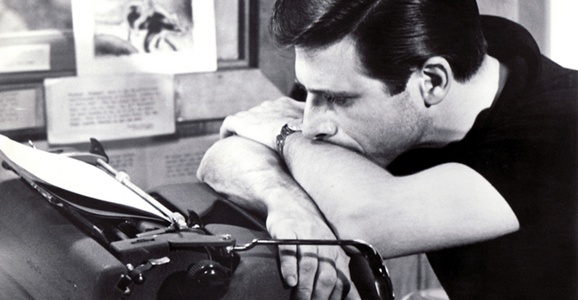Harlan Ellison Has Suffered A Stroke, Is Recovering In The Hospital
Get well soon, sir.
This article is more than 2 years old
 The legendary and oft-controversial Harlan Ellison suffered a stroke last week and is currently recouperating in the hospital. Harlan’s wife, Susan, first broke the news on Harlan’s website, saying, “A couple of days ago Harlan had a stroke. He’s in the hospital. His right side is paralyzed. He’s comfortable — as possible. We will keep you up-to-date with his progress.” Screenwriter Josh Olson, a close friend of Harlan’s, later said on Facebook that Harlan is “being quintessential Harlan — talking a mile a minute, and throwing out more obscure references per minute than anyone can possibly keep up with.”
The legendary and oft-controversial Harlan Ellison suffered a stroke last week and is currently recouperating in the hospital. Harlan’s wife, Susan, first broke the news on Harlan’s website, saying, “A couple of days ago Harlan had a stroke. He’s in the hospital. His right side is paralyzed. He’s comfortable — as possible. We will keep you up-to-date with his progress.” Screenwriter Josh Olson, a close friend of Harlan’s, later said on Facebook that Harlan is “being quintessential Harlan — talking a mile a minute, and throwing out more obscure references per minute than anyone can possibly keep up with.”
At the age of 80, Harlan Ellison has carved out a long and ridiculously prolific career, penning “over 1,700 short stories, novellas, screenplays, comic book scripts, teleplays, essays,” stretching across damn near any genre or sub-category you could think of. He’s taken home numerous Hugo, Nebula, Bram Stoker, and Edgar awards for stories such as “A Boy and His Dog”, “I Have No Mouth, and I Must Scream”, “‘Repent, Harlequin!’ Said the Ticktockman”, and “Jeffty Is Five” (one of my personal favorites). He also edited the acclaimed SF anthologies Dangerous Visions and Again, Dangerous Visions.
Harlan has also worked extensively in television, contributing scripts to The Outer Limits, Star Trek (his controversial and award-winning teleplay for “City on the Edge of Forever”), and the ’80s resurrection of The Twilight Zone (which adapted his stories “Shatterday” and “Paladin of the Lost Hour,” among others). The story behind “The City on the Edge of Forever” is almost as well known as the episode itself, with Ellison having notoriously butted heads with Trek creator Gene Roddenberry over the script. Ellison’s original script won a Writers Guild Award, and the shooting script won a Hugo. Harlan also served as a creative consultant on J. Michael Straczynski’s Babylon 5.
Of course, Harlan has also been surrounded by no shortage of controversy — not surprising given how strongly opinionated and outspoken he is. He once mailed a dead gopher — fourth class mail — to the comptroller of a publishing house over a rights dispute. He infamously sued James Cameron claiming that Terminator appropriated elements of Ellison’s two Outer Limits episodes, “Demon with a Glass Hand” and “Soldier.” Cameron called it a “nuisance suit,” but the suit was eventually settled out of court and an acknowledgement was added to the Terminator credits.
On a personal note, I got to meet Harlan briefly at a convention years ago, and he was every bit as scrappy and acerbic as his reputation suggests, but also very friendly and engaging. Watching him interact with a young child in line behind me, and the kid’s clueless parents then fumble an invite to Harlan’s house, is a story I still laugh about to this day. Harlan also, via a friend who works with him, sent me some very kind words after my divorce last year, a wholly unexpected surprise that cheered me up no end in the midst of an emotional maelstrom. I wish him a speedy and total recovery.
In the meantime, this seems like a perfect time to revisit some of Ellison’s works, or check him out for the first time if you never have before. I recommend Slippage and Angry Candy as excellent collections of his short stories, although you’d be hard pressed to do better than The Essential Ellison if you’re looking to make a deep dive. If you can actually find a copy, his Mind Fields collaboration with Jacek Yerka is outstanding, as are White Wolf’s sadly aborted Edgeworks collections (check your local used book store). If you’re more interested in Harlan’s Hollywood adventures, I’d suggest picking up both the City on the Edge of Forever script book and the I, Robot illustrated screenplay.
Also be sure to check out Harlanellisonbooks.com, which has been publishing collections of rare and previously unseen Ellison material for several years now.
Finally, we’ll leave you with Harlan himself, because nothing we could say can sum him up better than he can. Get well soon, sir.












